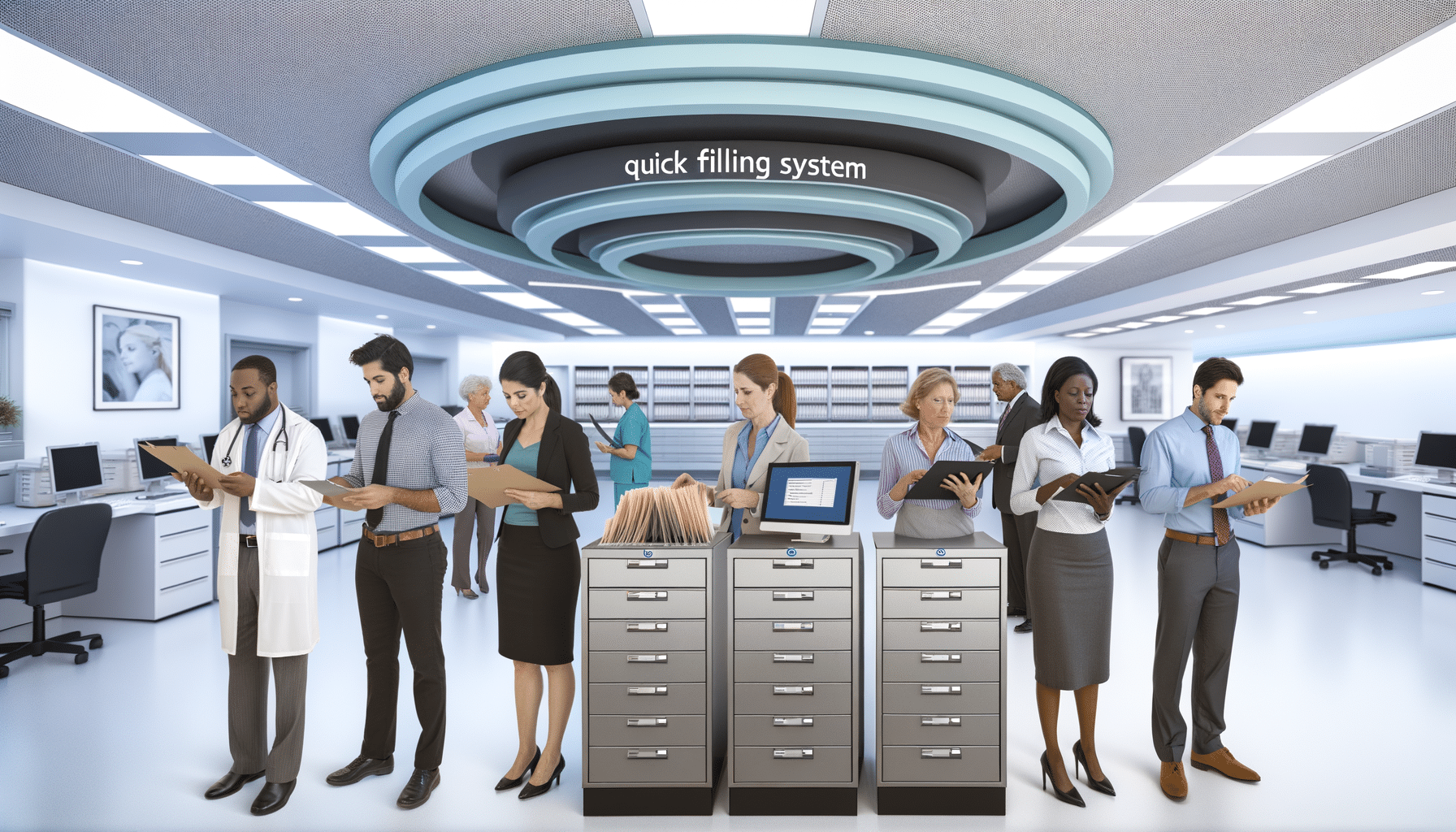- AI in Healthcare
- November 16, 2024
AI in Healthcare Record Interoperability

The healthcare industry, renowned for its complexities and challenges, has always been in dire need of innovative solutions. As someone who is at the intersection of technology and record management, I’ve witnessed the transformative power AI brings to healthcare, particularly when it comes to achieving interoperability. In this article, I aim to explore the revolutionary role AI plays in healthcare record interoperability and how it enhances the healthcare ecosystem.
Understanding Healthcare Interoperability
Before diving into how AI can be a game-changer, let’s unravel what healthcare interoperability is all about. Essentially, interoperability in healthcare refers to the ability of different information technology systems and software applications to communicate, exchange, and interpret shared data efficiently. It ensures that health information is accessible, timely, and comprehensible across various healthcare systems.
Yet, despite its significance, achieving seamless interoperability remains an elusive goal for many healthcare organizations. Issues like outdated technology, disparate systems, and varying data standards often impede progress. That’s where AI steps in.
AI: The Catalyst for Interoperability in Healthcare
AI in healthcare is no longer just a buzzword; it’s a necessity for propelling interoperability forward. Here’s how it revolutionizes the accessibility and usability of healthcare data:
1. Automated Data Standardization
One of the critical barriers to healthcare interoperability is the inconsistency in data formats and standards. AI algorithms can automatically standardize this diverse data, enabling disparate systems to ‘speak’ the same language. By employing natural language processing (NLP), AI tools can interpret unstructured data, like clinical notes, and convert them into standard formats that are easily understood by other systems.
2. Real-Time Data Exchange
Through AI-powered systems, healthcare providers can achieve real-time data sharing and updating. Advanced machine learning algorithms allow swift data processing and synchronization, minimizing the latency in information transfer. This is especially crucial in emergency scenarios where decisions need to be made based on the most current data available.
3. Enhanced Data Security
Security is a significant concern in healthcare data management. The integration of AI ensures robust data encryption and anomaly detection, providing another layer of security. By identifying potential threats and breaches, AI tools help maintain the integrity of health records, which is essential for trust in data exchange systems.
4. Predictive Analytics
AI enhances interoperability by offering predictive analytics that can forecast patient outcomes and optimize resource allocation. By analyzing historical and real-time data, AI tools can identify trends and patterns, offering healthcare professionals insights that were previously challenging to uncover. This predictive capability aids in improving patient care and streamlining healthcare operations.
Overcoming Challenges in AI Implementation
Despite its potential, implementing AI for interoperability comes with its set of challenges—ranging from high initial costs to the complexity of AI models. However, the long-term benefits, such as operational efficiency and improved patient outcomes, make it a worthwhile investment. To mitigate these challenges, organizations should focus on:
The Road Ahead
The potential of AI in driving healthcare interoperability is immense, promising a future where patient records are no longer trapped in silos but are accessible within a secure and unified system. Such advancements not only empower healthcare providers but also significantly improve patient care, enhancing decision-making capabilities and optimizing healthcare delivery.
As we embark on this journey towards greater interoperability, it’s imperative to keep pushing the boundaries of what’s possible with AI. By fostering collaboration among stakeholders, including technology innovators, healthcare providers, and policymakers, we can realize the promise of a truly interoperable healthcare ecosystem.
In conclusion, the integration of AI in healthcare interoperability is not just a vision; it’s a palpable reality we must work towards. I encourage my fellow innovators, healthcare leaders, and policymakers to continue exploring and investing in AI solutions that pave the way for seamless healthcare communication. Together, let’s build a future where healthcare systems are more interconnected, intelligent, and innovative than ever before.
To delve deeper into the enormous potential AI holds in transforming other industries, or to learn more about my journey in leveraging AI for record management, stay tuned for more insights and updates. Let’s unlock the future—together!
Toshendra Sharma is the visionary founder and CEO of RecordsKeeper.AI, spearheading the fusion of AI and blockchain to redefine enterprise record management. With a groundbreaking approach to solving complex business challenges, Toshendra combines deep expertise in blockchain and artificial intelligence with an acute understanding of enterprise compliance and security needs.
Related Posts

Quick Filing Systems for Busy Clinics
Efficient filing methods for high-traffic medical offices.
- December 16, 2024

Handling Rush Requests for Medical Records
Managing urgent medical record requests efficiently.
- December 1, 2024
Archives
- January 2025
- December 2024
- November 2024
- October 2024
- September 2024
- August 2024
- July 2024
- June 2024
- May 2024
- April 2024
- March 2024
- February 2024
- January 2024
- December 2023
- November 2023
- October 2023
- September 2023
- August 2023
- July 2023
- June 2023
- May 2023
- April 2023
- March 2023
- February 2023
- January 2023
- December 2022
- November 2022
- October 2022
- September 2022
Want to get more content like this?
Signup to directly get this type of content to your inbox!!
Latest Post
Document Control for Equipment Maintenance
- January 20, 2025
Managing Records for Multiple Clients
- January 19, 2025
Handling Conference Documentation
- January 18, 2025
Setting Up Department Record Reviews
- January 17, 2025





